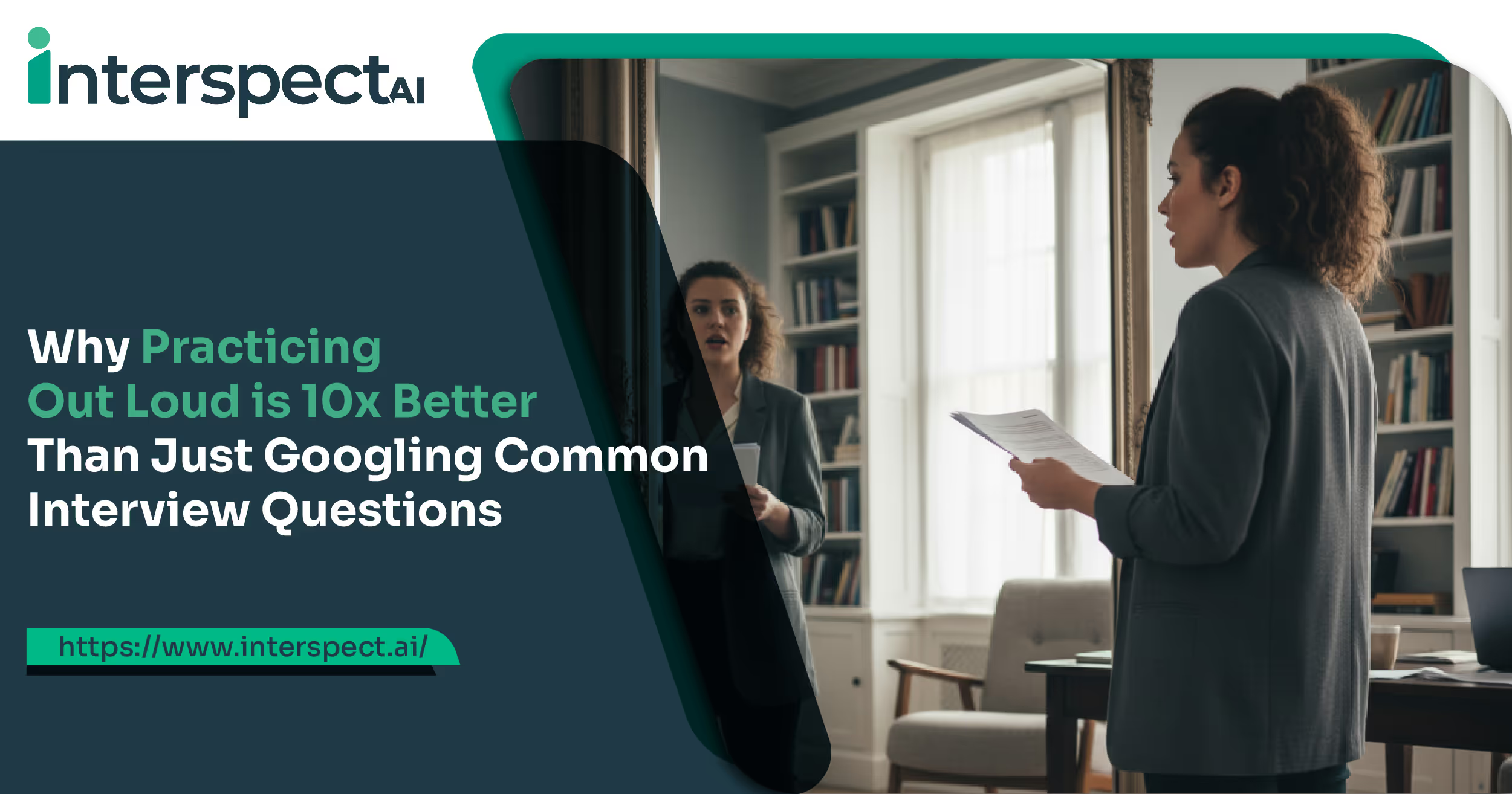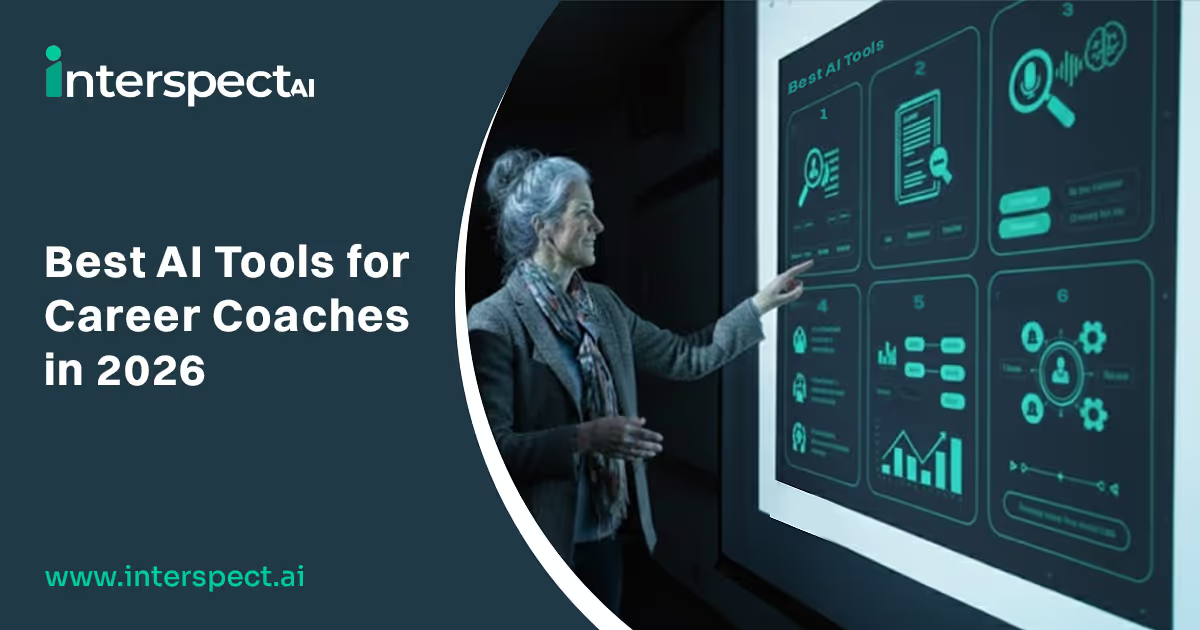Benefits of Agentic AI Interviews for Recruiters and Candidates



When thoughtfully implemented, Agentic AI interviews don’t just simplify recruiting processes - they create a win-win scenario for hiring teams and job seekers.
Everyone stands to gain.
What exactly is Agentic AI for interviews? Check out this article to learn more!
Agentic AI bring tangible benefits to HR teams and improve the job seekers' experience. Let’s break down the advantages for each side.
Benefits for recruiters & HR teams
The early interview stages can be much faster
AI interview agents can screen hundreds of candidates at once allowing hiring teams to move faster than ever.
Instead of spending weeks or months sifting through resumes and scheduling calls, recruiters can focus their time on the final decision-making steps. And when you move faster, you’re more likely to land top talent than someone else.
Learn how this revolutionizes hiring in How Agentic AI Interviews Are Revolutionizing Hiring & Talent Assessment.
Every candidate gets a uniform process with AI-powered structured interviews
Agentic AI ensures every candidate goes through the same structured process. That’s a win for fairness - and a relief for recruiters who need consistent data.
It removes a lot of the guesswork and gut bias from the equation. Recruiters still make the final call, but now they’re armed with consistent, data-backed evaluations rather than just subjective impressions.
For a deeper dive into ethical implications and balancing control, see Ethics and Autonomy in Agentic AI | Balancing Control and Decision-Making.
AI interviews can make it easier to widen your candidate pool
Since AI interviews are quick and scalable, you can invite more people - this is especially helpful for high-volume or entry-level roles.
Instead of needing to screen people out too early, you can assess more candidates, which often leads to discovering hidden gems you might’ve otherwise missed.
AI interviews let recruiters cast a wider net without additional workload while promoting diversity and inclusion in hiring.
Explore how this shapes the future of talent assessment in The Rise of Agentic AI-Powered Interviews: What It Means for Businesses & Professionals.
AI provides rich data and analytics
AI doesn’t just say “hire” or “don’t hire.” It provides transcripts, sentiment analysis, skill assessments, and candidate comparisons.
This insight helps hiring managers ask smarter follow-up questions and spot trends over time, like which interview traits actually predict strong job performance.
Over time, the data from AI interviews can also highlight trends. Maybe you’ll discover that candidates who score high on the AI’s “critical thinking” metric tend to perform better in your company’s assessment center, validating that metric.
Vastly reduced administrative burden
Scheduling interviews, sending reminders, taking notes—all that repetitive admin work? AI can take care of it.
Many agentic AI platforms handle scheduling (or skip it altogether with async interviews) and automatically log transcripts and responses. Thus, you can search, replay, and reference everything without ever having to type up a summary.
Hilton, for example, used AI interviews to make 400% more job offers with 23% fewer recruiting staff while cutting time to fill.
Benefits for candidates
AI-driven interviews often offer much more flexibility than traditional ones
One of the most significant advantages is that candidates can do the interviews when it suits them - evenings, weekends, or between commitments. There is no need to take time off or stress over travel.
This flexibility creates a better environment for candidates to perform at their best, which is especially helpful for working professionals or students.
Reduced fear of bias
For candidates from underrepresented backgrounds, knowing that they’re being evaluated solely on their responses - not their accent, name, or background - can make a huge difference.
AI interviews level the playing field by standardizing questions and assessments. Everyone gets the same chance to show what they’re made of.
Improved candidate experience
AI interviews are designed with candidate experience in mind. They’re structured, time-efficient, and often come with prep tools or practice runs to help candidates feel more confident.
And with faster processing, candidates usually receive updates sooner, making the experience feel more responsive and reassuring.
Personal growth and feedback
Some AI interview platforms turn the experience into a two-way street by offering candidates constructive feedback-something that’s also valued in thoughtful human-led interviews. Even without formal feedback, candidates often reflect on the structured questions and gain clarity about their own responses.
Reduced pressure
Interview nerves are real. Not everyone enjoys face-to-face interviews - especially introverts or anxious speakers. AI interviews can be more comfortable, especially when candidates can record their answers privately and even redo them if allowed.
Text-based AI interviews can be a relief for folks who don’t love being on camera. And there’s no need to read body language or worry about interviewer reactions.
While not perfect for everyone, this format removes some of the social pressures that can cloud performance.
Ready to Experience Agentic AI Interviews?
The future of hiring is adaptive, equitable, and human-centered. With benefits like reduced bias, faster hiring cycles, and richer candidate insights, AI interview agents are no longer a novelty but a necessity.
This is where SpectraHire shines.
As a leader in agentic AI interviewing, SpectraHire combines cutting-edge language analysis, ethical fairness safeguards, and seamless recruiter workflows.
Ensure every candidate gets a fair shot and every recruiter gains actionable insights. Explore SpectraHire.
Subscribe to The InterspectAI Blog


%201.svg)






